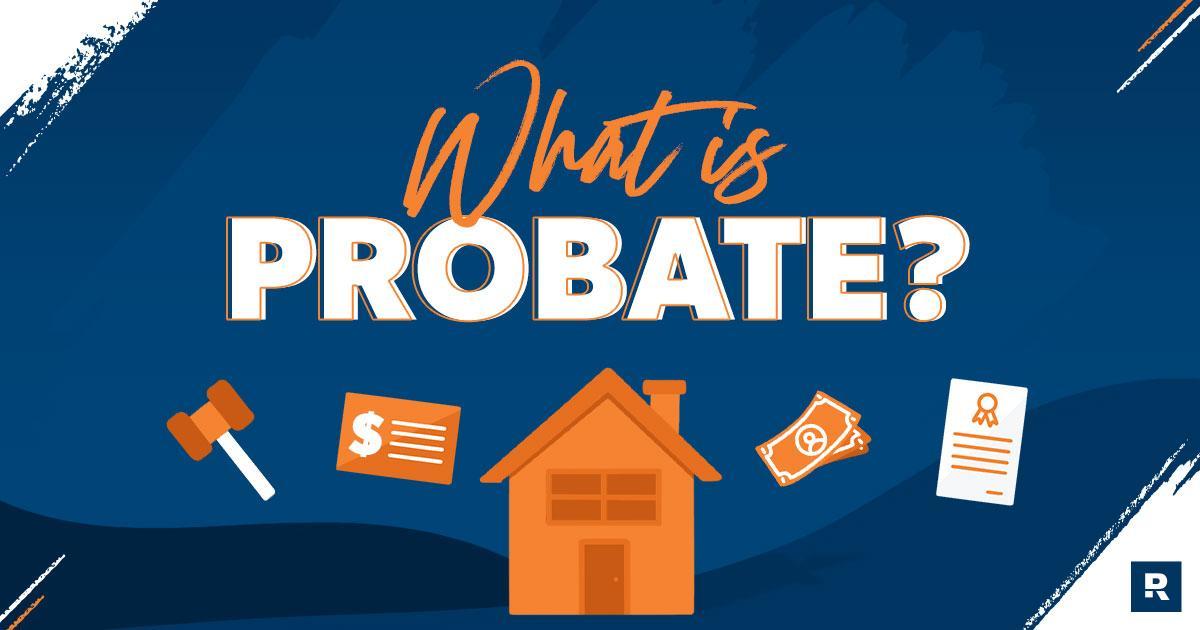Dealing with the aftermath of a loved one’s death can be a daunting task, especially when it comes to managing their estate. One of the most common questions that arise during this period is the necessity of probate. Probate is a legal procedure that validates a deceased person’s will and distributes their assets. This article aims to demystify the probate process, including its requirements and the steps involved. By gaining a deeper understanding of probate, you can tackle this challenging period with more confidence and tranquility.
Probate Explained: What Occurs After a Death
Ever pondered what transpires with a person’s estate after their demise? When an individual passes away, their estate usually undergoes a legal process known as probate. Probate is crucial for transferring the deceased’s assets to the rightful heirs or beneficiaries. Here’s a brief overview of the probate process:
- Court Oversight: Probate requires court oversight to ensure the deceased’s assets are distributed as per their will or state laws if no will exists.
- Executor: The executor, typically named in the will, is tasked with managing the deceased’s assets, settling debts, and distributing the remaining assets to beneficiaries.
- Notification of Creditors: During probate, creditors are informed of the person’s death so they can lodge claims against the estate for any outstanding debts.
While probate can be intricate and time-consuming, it is essential to ensure the deceased’s assets are distributed correctly. If you have queries about probate or need assistance navigating the process, it’s advisable to seek help from a probate attorney who can guide you through each step.
Ascertaining the Need for Probate
Before delving into the intricacies of probate, it’s crucial to ascertain whether it’s necessary. Here are some key aspects to consider:
- Jointly Held Assets: If the deceased held assets jointly with a spouse or another person, those assets usually pass directly to the surviving joint owner without the need for probate.
- Designated Beneficiaries: Assets like life insurance policies, retirement accounts, and certain bank accounts may have designated beneficiaries who will receive the assets outside of probate.
- Small Estates: In some jurisdictions, estates below a certain value may qualify for simplified probate procedures or may be exempt from probate entirely.
If none of these scenarios apply, probate will likely be necessary to settle the deceased’s estate. This involves validating the will, identifying and appraising assets, settling debts, and distributing the remaining assets to heirs or beneficiaries as per the will or state law.
Elements That Affect the Probate Procedure
Probate can be a complex and lengthy process, but not everyone has to undergo it when a loved one dies. Several factors determine whether probate is necessary, including:
- Estate Size and Complexity: If the deceased had a small estate with few assets and debts, probate may not be necessary. Conversely, a large estate with multiple assets and complex financial holdings may require probate.
- Existence of a Will: If the deceased left a valid will detailing how their assets should be distributed, the probate process may be quicker and smoother. However, if there’s no will or if the will is contested, probate may be necessary to resolve any disputes.
- State Laws: Each state has its own probate laws, so the requirements can vary significantly. Some states offer simplified probate procedures for small estates, while others have stricter guidelines for larger estates.
- Beneficiary Designations: Assets like retirement accounts, life insurance policies, and bank accounts with designated beneficiaries typically bypass probate and go directly to the named beneficiaries. This can help avoid the probate process for certain assets.
| Factors | Probate Required? |
|---|---|
| Small Estate | No |
| Valid Will | Possibly |
| State Laws | Varies |
| Beneficiary Designations | No |
Professional Advice for Handling Probate Proceedings
Dealing with a loved one’s death can be overwhelming, especially when it comes to navigating the legal process of probate. However, understanding the key steps and seeking professional advice can make the process more manageable. Here are some tips to help you handle probate proceedings:
- Seek Legal Counsel: Legal advice from a seasoned estate attorney can help you understand the probate process and ensure you meet all legal obligations.
- Collect Relevant Documents: Gathering all necessary documents such as the will, death certificate, financial statements, and property deeds can speed up the probate process.
- Inform Creditors and Beneficiaries: Notifying creditors and beneficiaries about the death is crucial to protect the estate and distribute assets as per the will.
- Attend Court Hearings: Attending probate court hearings is important to present relevant documents, address any issues, and ensure a smooth settlement of the estate.
The Wrap-Up
In conclusion, navigating the legal process of probate can be intimidating when a loved one passes away. However, understanding the laws and requirements surrounding probate can help alleviate the stress during a difficult time. While probate may not always be necessary, it’s important to be prepared and informed. Consulting with an attorney can provide valuable guidance and support as you navigate the complexities of probate. Remember, each situation is unique, and it’s important to approach probate with patience and diligence. Ultimately, seeking the right guidance and support can help ensure a smooth and efficient resolution during this challenging time.
 **Meta Title: Is Probate Necessary After a Loved One’s Death? Everything You Need to Know**
**Meta Title: Is Probate Necessary After a Loved One’s Death? Everything You Need to Know**
**Meta Description: Wondering if probate is necessary after a loved one’s passing? This article provides valuable insights, practical tips, and case studies to help you understand the process better. Read on to learn more.**
—
Losing a loved one is undoubtedly one of the most challenging experiences anyone can face. Amidst the grief and mourning, there are various practical matters that need to be addressed, including the legal process of probate. Probate is the court-supervised process of authenticating a will and ensuring that the deceased person’s assets are distributed according to their wishes or state law. But is probate always necessary after a loved one’s death? Let’s delve into this topic to provide you with a clearer understanding.
**What is Probate?**
Probate is the legal process through which a deceased person’s estate is administered and distributed. It involves several steps, including:
1. Authenticating the deceased person’s will (if one exists).
2. Identifying and inventorying the deceased person’s assets.
3. Appraising the value of the assets.
4. Paying outstanding debts and taxes.
5. Distributing the remaining assets to beneficiaries.
While probate laws vary from state to state, the primary goal of probate is to ensure that the deceased person’s assets are distributed fairly and according to the law.
**Is Probate Always Necessary?**
Whether or not probate is necessary after a loved one’s death depends on several factors, including the size of the estate, the existence of a valid will, and the type of assets involved. Here are some situations in which probate may not be required:
1. Small Estates: In many states, if the value of the deceased person’s estate falls below a certain threshold, probate may not be necessary. This threshold varies by state but is often around $150,000.
2. Joint Ownership: Assets that are jointly owned with rights of survivorship, such as a house or bank account, pass directly to the surviving co-owner and do not need to go through probate.
3. Beneficiary Designations: Assets with designated beneficiaries, such as life insurance policies or retirement accounts, also bypass probate and go directly to the named beneficiaries.
**Benefits of Avoiding Probate**
While probate serves an essential function in ensuring the orderly distribution of assets, there are some potential benefits to avoiding probate, including:
1. Privacy: Probate proceedings are a matter of public record, so avoiding probate can help maintain the privacy of the deceased person’s estate.
2. Cost Savings: Probate can be a lengthy and expensive process, involving court fees, legal fees, and other expenses. By avoiding probate, you can potentially save on these costs.
3. Time Savings: Probate can take months or even years to complete, causing delays in distributing assets to beneficiaries. Avoiding probate can expedite the process.
**Practical Tips for Handling Probate**
If probate is necessary after a loved one’s death, here are some practical tips to help you navigate the process smoothly:
1. Consult with an Attorney: An experienced probate attorney can guide you through the legal requirements and ensure that the probate process proceeds efficiently.
2. Gather Important Documents: Collect all relevant documents, including the deceased person’s will, financial statements, and deeds to assets.
3. Notify Creditors and Beneficiaries: Inform creditors of the deceased person’s passing and notify beneficiaries of their potential inheritance.
4. Stay Organized: Keep detailed records of all transactions and communications related to the probate process to prevent any misunderstandings or disputes.
**Case Studies: Real-Life Examples**
To illustrate the complexities and nuances of the probate process, let’s consider two fictional case studies:
1. The Smith Family: After Mr. Smith passed away without a will, his estate needed to go through probate. His wife, Mrs. Smith, worked with a probate attorney to inventory their assets, pay off debts, and distribute the remaining assets to their children.
2. The Johnson Estate: Mr. Johnson had a sizable estate with multiple properties and investments. With the help of a trust, he was able to bypass probate entirely, ensuring a smooth transfer of assets to his beneficiaries.
**In Conclusion**
While probate is a necessary legal process in many cases, there are situations where it may be avoided. By understanding the factors that determine whether probate is necessary and taking proactive steps to address the probate process, you can navigate this challenging time with greater ease and clarity. Remember, seeking guidance from legal professionals and staying organized are key to ensuring a successful probate process.


